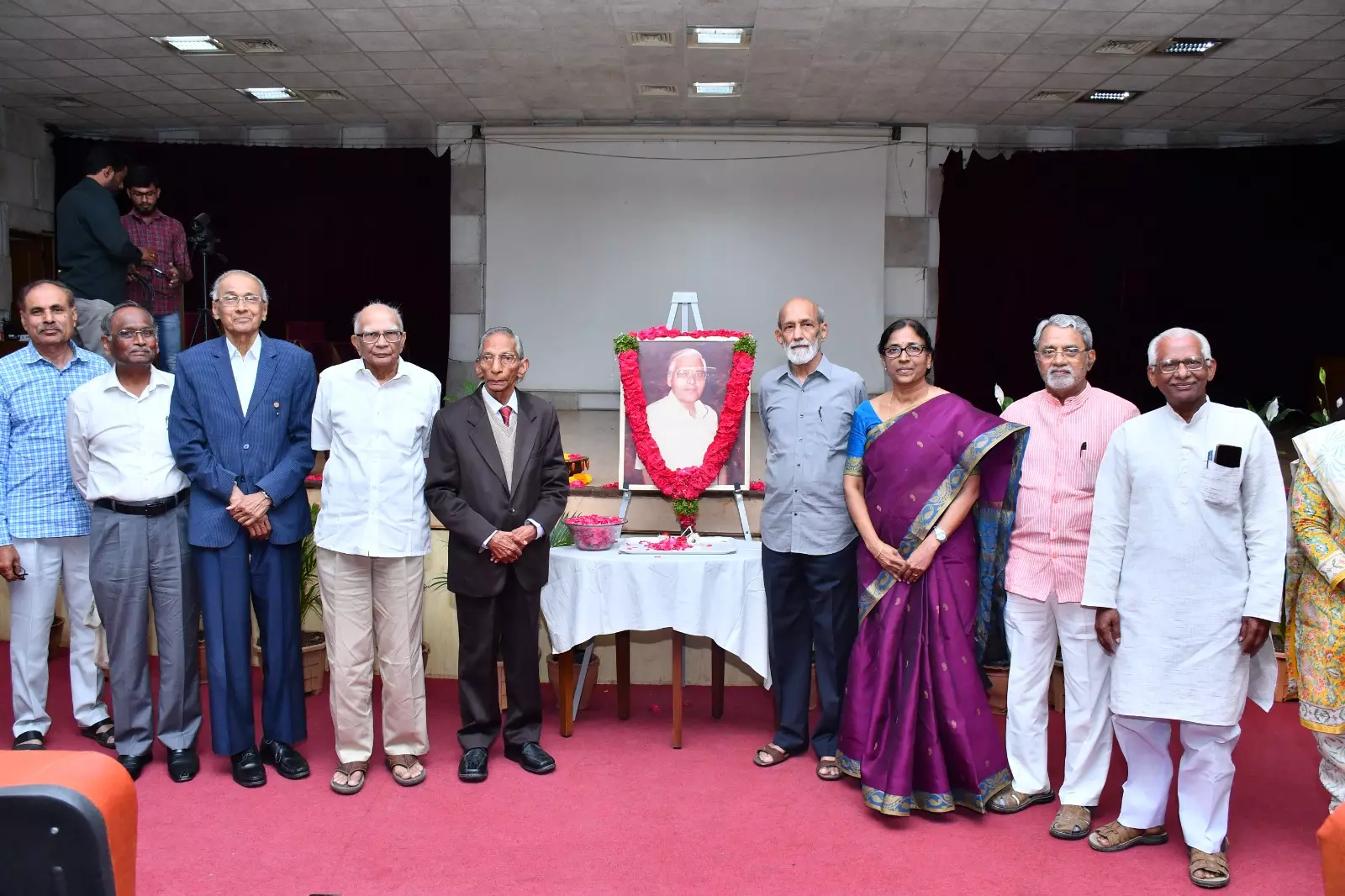
Hyderabad: “Inequality in higher education is growing as a result of disparity in income levels, the pace of which has accelerated significantly since 2000. Consequences of this inequality are detrimental to the goals of inclusive growth. The seeds of equality to education are sown at the level of basic schooling,” said Prof. D. Narasimha Reddy, former professor of economics at CESS, Hyderabad.
He was speaking at the “Waheeduddin Khan Memorial Lecture” organized by Centre for Economic and Social Studies. The lecture was organized in honour of Prof. Waheeduddin Khan, one of the founding members of the Centre.
Education is a major source of income inequality. Deprivation from quality education becomes a barrier to upward economic and other types of mobility. It is most significant in the era of globalization which is characterized by high levels of labour mobility. Nature of inequality in India of late has shifted from vertical to horizontal inequality. Horizontal inequality which is found within different social and economic groups is now becoming more and more evident in recent times. This inequality is reflected in multiple forms. The inequality may be seen to become rampant among the middle class, which seems to be hollowing out or thinning out with impact seen in its ability to afford basic entitlements like education and health among other areas, Prof Narasimha Reddy said.
Reservation for the deprived sections is a constitutional provision for ensuring social justice. Prof Reddy stated that reservations should not be limited to admission in schools but be seen as a tool for achieving social justice. In this context he opined that premier institutions like IITs and IIMs are not implementing reservations effectively.
Starting his discourse with the philosophical foundations of equality of opportunity, he presented various paradigms and perspectives, he recapitulated on the various provisions in the Indian Constitution dealing with right to equality, compensatory discrimination for SC/ST in the form of reservations in the Directive Principles of State Policy, which he opined was a major breakthrough in them accessing the portals of institutions of higher education.
Substantiating the state of inequality in higher education with findings from the various rounds of NSSO studies he drew the trends of enrolment ratio in higher education among social groups between 1993-94 and 2017-18 and the rural urban divide in the distribution of students attending various types of institutions of higher education, by caste and religious groups.
The meeting was chaired by Prof. Dilip M Nachane, chairman CESS, Hyderabad. Dr. E. Revathi, director of CESS introduced the chief speaker.






